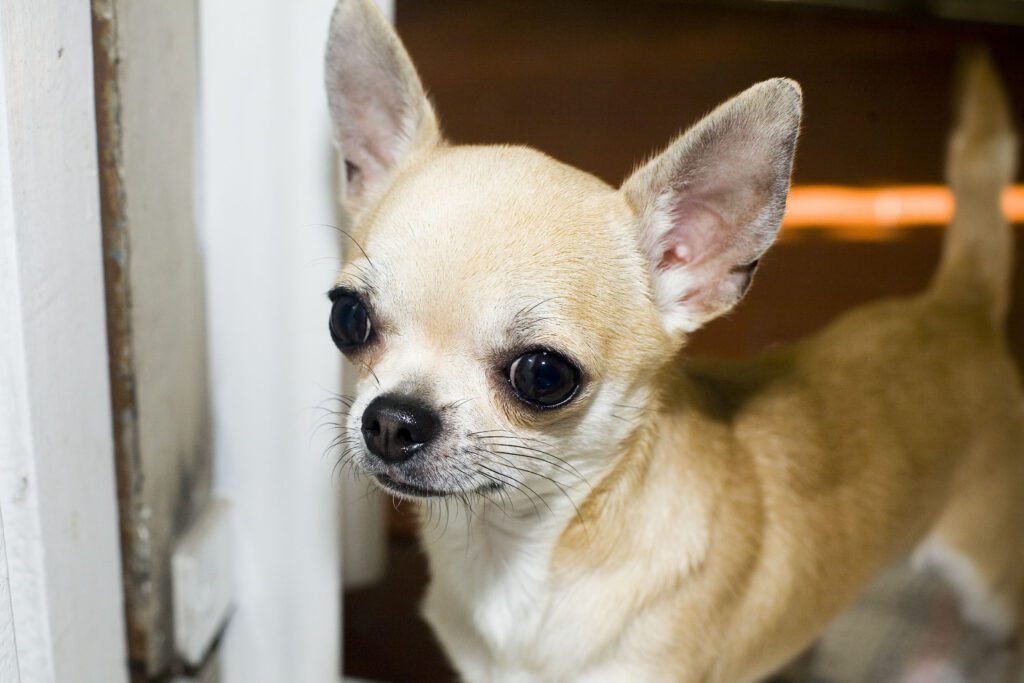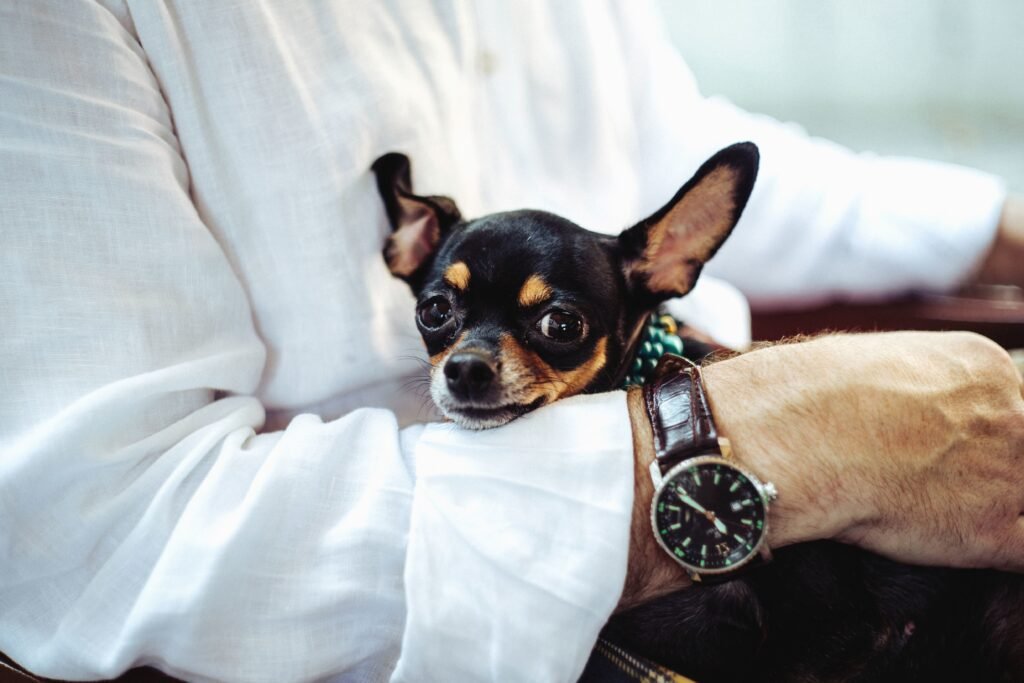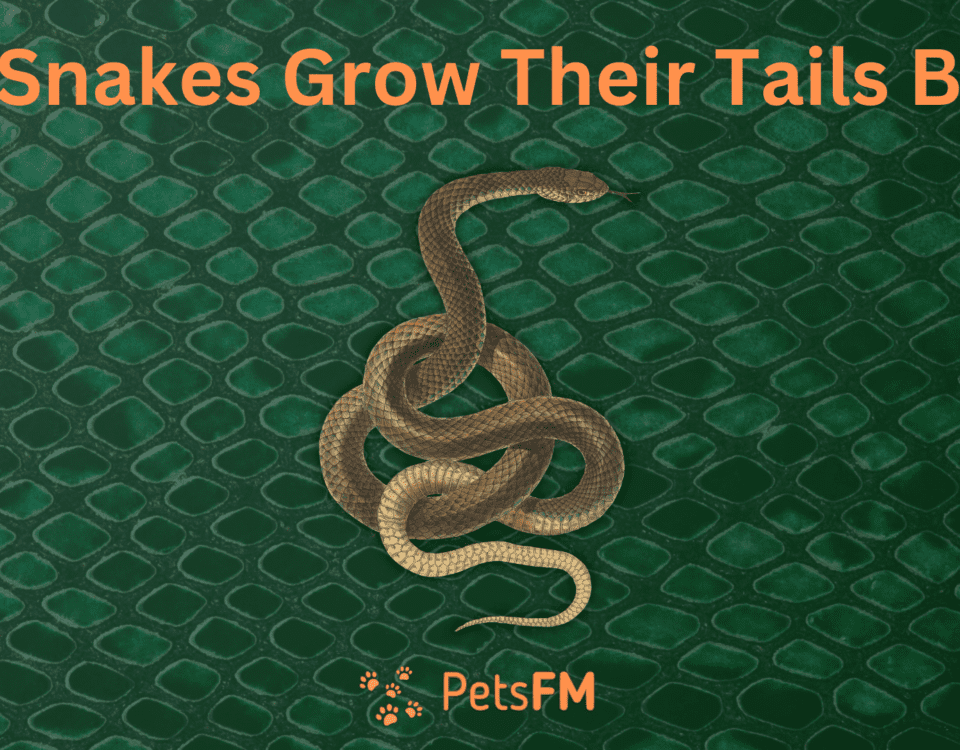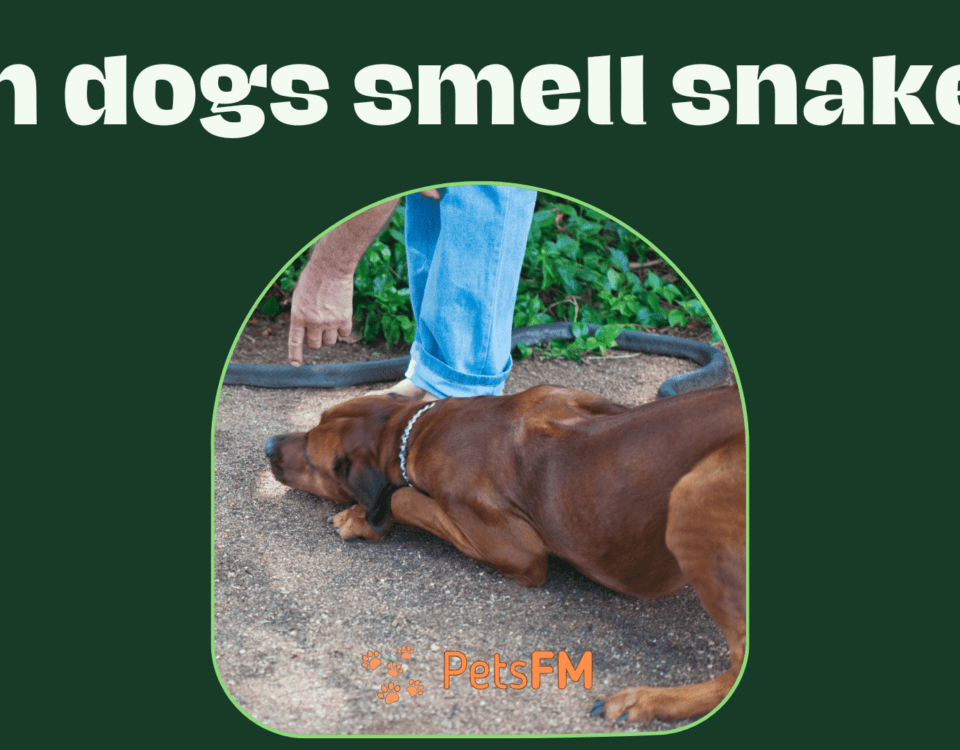


Can Birds Eat Chia Seed? Here Are All the Health Benefits!
December 30, 2023


25 Birds With Red Heads (+Pictures Included)
December 30, 2023Is your chihuahua the ruler of your home? For instance, if he claims a chair, is it impossible to move him without facing a loud outbreak of growling and snapping? Do you choose to let him be for peace, or do you find humor in his grumpy behavior and move him anyway?
Question: What makes Chihuahuas so prone to anger?
Answer: Among the many reasons behind a chihuahua’s anger, most of it stems from their small size. More precisely, it’s usually related to how people interact with them due to their miniature stature. Chihuahuas require the same treatment as any other breed, but owners often overlook this necessity.
Continue reading the most common causes behind the aggressive personality of these tiny dogs and how you can calm them down.
Historical Background of the Chihuahua Breed
Chihuahuas come from Mexico, originally bred from a larger dog called the Techichi. The Toltec civilization, and later the Aztecs, made the Techichi smaller, creating the Chihuahua we know today. This breed was named after the Mexican state of Chihuahua, where Americans found them and brought them to the U.S. in the late 1800s. In the past, Chihuahuas were special for their believed healing powers and as guides for the afterlife. This history helps us understand why Chihuahuas are so popular and unique.
Why Are Chihuahuas So Angry All The Time?
Chihuahuas often exhibit anger due to a combination of factors like a genetic mutation, their small stature, and a high metabolic rate. The genetic mutation in Chihuahuas leads to dwarfism, which causes somatropin deficiency. This deficiency can result in conditions that contribute to their anger.
Different dog breeds have distinct reactions. For instance, many dogs lick blankets, carpets, and furniture as a behavioral response. On the other hand, Chihuahuas tend to show aggression as their way of reacting.
Some believe that the small size of Chihuahuas makes them more prone to fear, which they express as anger. Others argue that they are naturally predisposed to aggression. With these varied opinions, many Chihuahua owners find themselves pondering questions like:
- Is my chihuahua angry because she is scared?
- Is my chihuahua’s aggression a result of breeding?
- How can I reduce or manage my chihuahua’s anger?
Continue reading the reasons why these tiny creatures show extreme anger.
Reasons Why Chihuahuas Are Angry
1: Genetic Mutation Leading to Dwarfism in Chihuahuas
Chihuahuas experience a form of dwarfism caused by a genetic mutation. This mutation results in a shortage of somatropin, an essential growth hormone.


Angry Chihuahua
The lack of this hormone inhibits the normal development of bones, muscles, and organs, contributing to the small stature characteristic of Chihuahuas. These dogs often display physical abnormalities, such as disproportionately short legs, oversized heads, and bulging eyes.
Health Conditions Associated with Dwarfism in Chihuahuas
- Osteochondrodysplasia (OCD): This ailment causes abnormal cartilage growth in the joints, leading to improper bone development and deformities.
- Achondroplasia: Affects normal cartilage formation, resulting in shorter bones.
- Hydrocephalus: An accumulation of excess fluid in the brain, causing swelling.
These health issues can lead to physical characteristics commonly linked to anger expressions in Chihuahuas.
Physical Signs of Anger in Chihuahuas Related to Dwarfism
- Enlarged Head: Due to hydrocephalus, Chihuahuas may have a head size larger than usual, with increased brain pressure contributing to irritability.
- Protruding Eyes: Achondroplasia can cause the eyes to bulge, making them sensitive and more prone to agitation.
- Short Legs: Shortened legs from osteochondrodysplasia can result in feelings of insecurity and anxiety, often expressed as anger.
- Crooked Teeth Due to Shorter Jaw: The malformed bone structure can lead to irregular teeth alignment, adding to the dog’s discomfort.
These physical symptoms of dwarfism are paralleled by psychological manifestations, such as anger and agitation, explaining the often irritable and aggressive nature of Chihuahuas.
2: Relative Size of Chihuahuas Compared to Larger Dog Breeds
Chihuahuas are known for being the smallest breed of dogs. Adult Chihuahuas typically measure 6 to 13 inches in height, in stark contrast to larger species like German Shepherds, which stand at about 24 to 26 inches when fully grown.
This size disparity can lead to Chihuahuas being the target of bullying or mockery, contributing to feelings of insecurity.
Such insecurity is a key psychological factor behind the often-observed anger in Chihuahuas. In an attempt to assert themselves and regain a sense of control, they may exhibit aggressive behaviors.


Like shorter individuals who might feel the need to assert their presence more vocally in the face of perceived threats, Chihuahuas might adopt an overcompensating behavior, too. This is a way for them to be noticed and demonstrate that they can significantly impact despite their small size.
Due to their diminutive stature, Chihuahuas often face mistreatment from humans and other dog breeds, leading to anxiety and anger. Common signs of aggressive behavior in Chihuahuas include:
- Excessive barking
- Growling
- Biting objects and running around
- Snapping
- Nipping
- Attacking other dogs or animals
3: High Metabolic Rate in Chihuahuas
Chihuahuas are known for having a faster metabolism than other dog breeds, a trait attributed to their small size and elevated body temperature.
Due to their high metabolic rate, Chihuahuas require more frequent meals to sustain their energy. Despite this need, they often don’t consume enough food, primarily because of their tiny size. Therefore, regular feeding is crucial to meet their energy demands.
This increased metabolism often causes Chihuahuas to shiver, especially in anxiety or excitement. For instance, you may have noticed your chihuahua trembling when you return home or when they encounter another dog.
Their shivering is a response to emotional states and a mechanism to cope with their inability to regulate body temperature efficiently. High metabolic rates lead to quicker body heat dissipation, making Chihuahuas feel cold even in environments that seem comfortably warm to humans.
The act of shivering in Chihuahuas attempts to stabilize their body temperature. However, their inherent anxiety can intensify this reaction, resulting in increased agitation.
4: They Are Born To Be Aggressive
The origins of the Chihuahua breed are somewhat enigmatic, but it is commonly believed that their ancestors, the Techichi dogs, were bred for aggressive traits in Mexico. This aggressiveness was necessary for roles such as dogfighting and ratting, where survival depended on their combative abilities.
Despite the decline in practices like dogfighting and ratting, the trait of aggression has persisted in the Chihuahua breed.
Initially, the Toltec civilization raised the Techichi breed as companion dogs, known for their gentle and affectionate nature, providing comfort and companionship to their owners.


However, the transition of the Techichi breed to Mexico involved crossbreeding with other species, including the Xoloitzcuintli and the Pug. This crossbreeding contributed to the evolution of the modern chihuahua, infusing it with varied traits from these other breeds.
The cause of the chihuahua’s aggressive behavior remains uncertain, but it is theorized to be a consequence of their historical breeding and the aggressive characteristics passed down through generations.
5: The Chihuahua Wants Your Attention
Chihuahuas are often called “Velcro dogs,” signifying their tendency to seek more constant attention and affection from their owners than other dog breeds.
When Chihuahuas do not receive the level of attention they crave, they may experience anxiety and stress. This emotional state can lead them to exhibit angry behaviors to capture your attention.
It’s common to observe a chihuahua barking excessively or engaging in nipping behaviors when they feel neglected or overlooked.


The Chihuahua Wants Your Attention
Additionally, a Chihuahua might exhibit bossy behavior to seek attention. This can include jumping on you, sitting on your lap, or following you persistently around the house, more so than other dogs might.
While such behavior may initially appear endearing, it can become bothersome and overwhelming. Ignoring your chihuahua’s need for attention can lead to frustration on their part, potentially resulting in aggressive behavior.
6: Experiencing Periods (Female Dogs)
Dogs typically experience their heat cycles, or estrus, twice a year. This is a period when female dogs are receptive to mating.
During this phase, which usually spans 14 to 20 days annually, female dogs show a notable increase in estrogen levels. This hormonal change can lead to mood fluctuations and heightened aggression.
Female Chihuahuas undergo the same hormonal changes during their heat cycles, often exhibiting increased mood swings and aggression.
You may have noticed signs of aggression in your chihuahua during her heat cycle, such as excessive barking, nipping, or increased aggression.
During these times, it’s essential to maintain calm behavior and provide a comforting environment for your chihuahua, offering her a secure space where she can feel at ease and relaxed.
7: Reaction To New People Or Situations
Chihuahuas are inherently independent creatures that often exhibit wariness towards unfamiliar people and animals. Their discomfort with change and disruption to their regular routine is a significant factor in this behavior.
Their cautious demeanor typically stems from fear, which can escalate into anger in new or unfamiliar environments. In such situations, Chihuahuas may display aggressive behavior, such as excessive barking, to assert control.


Chihuahua in Hand
You may have observed this type of aggression from your chihuahua during visits to the vet or when encountering new individuals in your home.
In these scenarios, it’s crucial to maintain a calm and patient approach. Providing your chihuahua with a secure and comforting space can help alleviate their anxiety and promote a sense of ease.
Physical and Genetic Factors Contributing to Anger
Chihuahuas’ propensity for anger is significantly influenced by a blend of physical and genetic factors. The breed is known for a genetic mutation leading to a form of dwarfism, characterized by a deficiency of the growth hormone somatropin.
This hormonal imbalance not only dictates their small stature but also contributes to various physical abnormalities. These include disproportionately short legs, oversized heads due to conditions like hydrocephalus, and protruding eyes from bone development disorders like achondroplasia.
Such physical traits can lead to discomfort and health issues, which in turn may manifest as irritability and aggression in these dogs. Additionally, their tiny size often results in a sense of vulnerability, further heightening their defensive and aggressive responses. Understanding these intrinsic physical and genetic aspects is key to comprehending the often fiery temperament of Chihuahuas.
How Can You Deal With Your Chihuahua’s Anger Issues?
To effectively address anger issues in Chihuahuas, it’s essential to understand the root causes and employ strategies tailored to their unique needs. Here are several approaches:
1. Socialize Them From a Young Age
- Introducing chihuahuas to various people, animals, and environments from an early age is crucial.
- Socialization helps them become more adaptable and less fearful in new situations, reducing the likelihood of aggression.
- Regular interactions with different stimuli can foster a sense of security and confidence, making them more relaxed and friendly.
2. Provide a Secure and Safe Environment
- Creating a safe and comfortable space for your chihuahua is vital for their emotional well-being.
- A predictable and calm environment, free from stressors and loud noises, can significantly lower their anxiety levels.
- Ensure they have a cozy spot where they can retreat and feel protected.
3. Identifying the Angrying Triggers
- Understanding what triggers your chihuahua’s anger is key to managing it.
- Observe their behavior to pinpoint specific situations, sounds, or actions that cause distress.
- Once identified, you can work on desensitizing them to these triggers or avoiding them to keep your pet calm and composed.
4. Show Them Extra Love, Care, and Attention
- Chihuahuas thrive on affection and attention from their owners.
- Regularly showing love through petting, cuddling, and spending quality time together can significantly reduce feelings of insecurity and aggression.
- Ensuring they feel valued and part of the family is crucial for their emotional health.
5. Ensuring Your Chihuahua Is in a Comfortable Environment With Enough Food and Water
- Due to their high metabolism and sensitivity to cold, chihuahuas need a warm environment and regular meals.
- Ensure they access a comfortable, warm spot and consistent food and water supply.
- This care helps maintain their physical health, impacting their mood and behavior.
6. Positive Reinforcement Techniques to Control Your Pet’s Anger
- Using positive reinforcement techniques like treats, praise, and affection to encourage good behavior is highly effective.
- Rewarding your chihuahua for calm and non-aggressive actions reinforces desired behaviors.
- Consistent positive reinforcement helps in gradually reducing angry outbursts.
7. Getting Professional Help if the Dog’s Anger Is Severe
- If your chihuahua’s anger issues are severe and unmanageable, seeking professional help from a veterinarian or a dog behaviorist is advisable.
- They can provide specialized guidance and prescribe treatments or behavior modification programs tailored to your dog’s needs.
- Professional intervention can be crucial for more severe cases.
Wrapping Up
The question “Why are Chihuahuas so angry?” suggests that these dogs often lack appropriate training and affection from an early age. Chihuahuas, known for their distinct personalities, flourish in a nurturing and caring home environment.
Chihuahuas develop aggressive behaviors without adequate love, care, and attention. However, this aggression can be mitigated through consistent affection, a comfortable and warm living space, and positive reinforcement strategies.
As the owner of a Chihuahua, it is your responsibility to prevent your adorable pet from turning into an aggressive little creature by providing the necessary care and love she requires.



